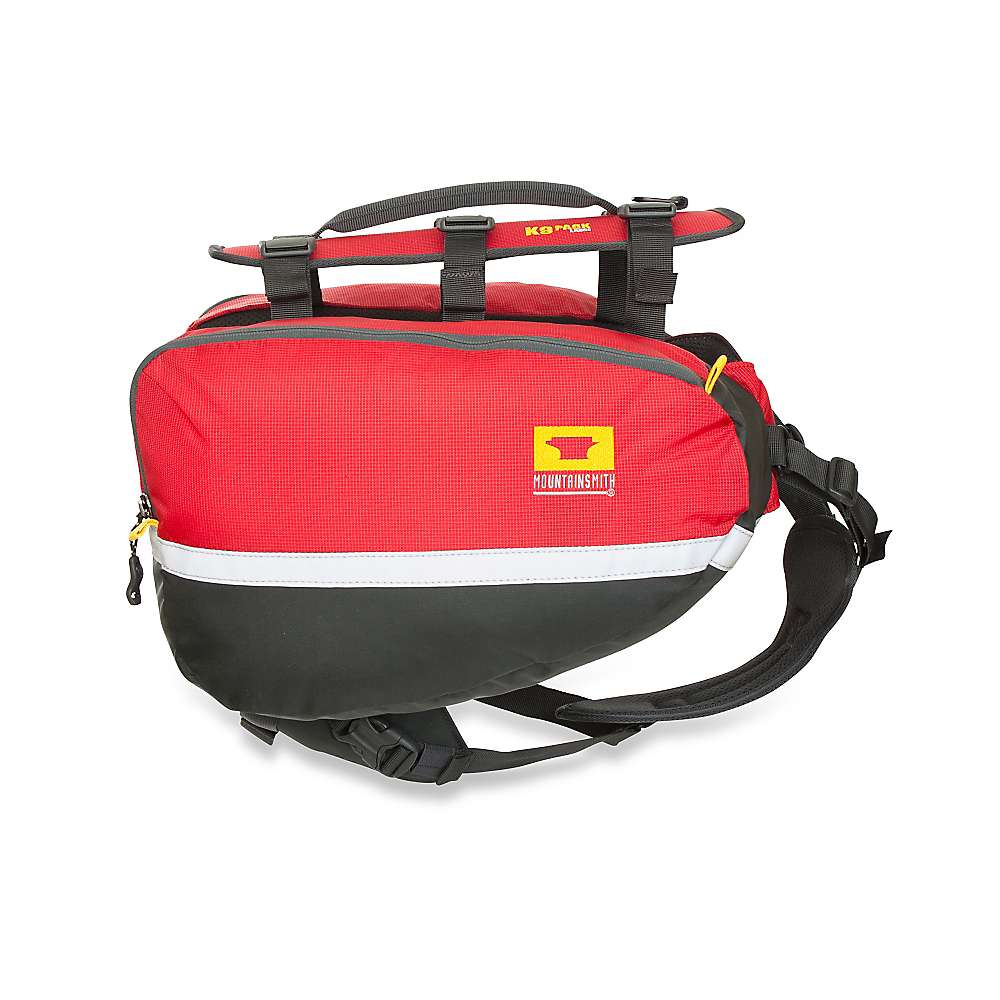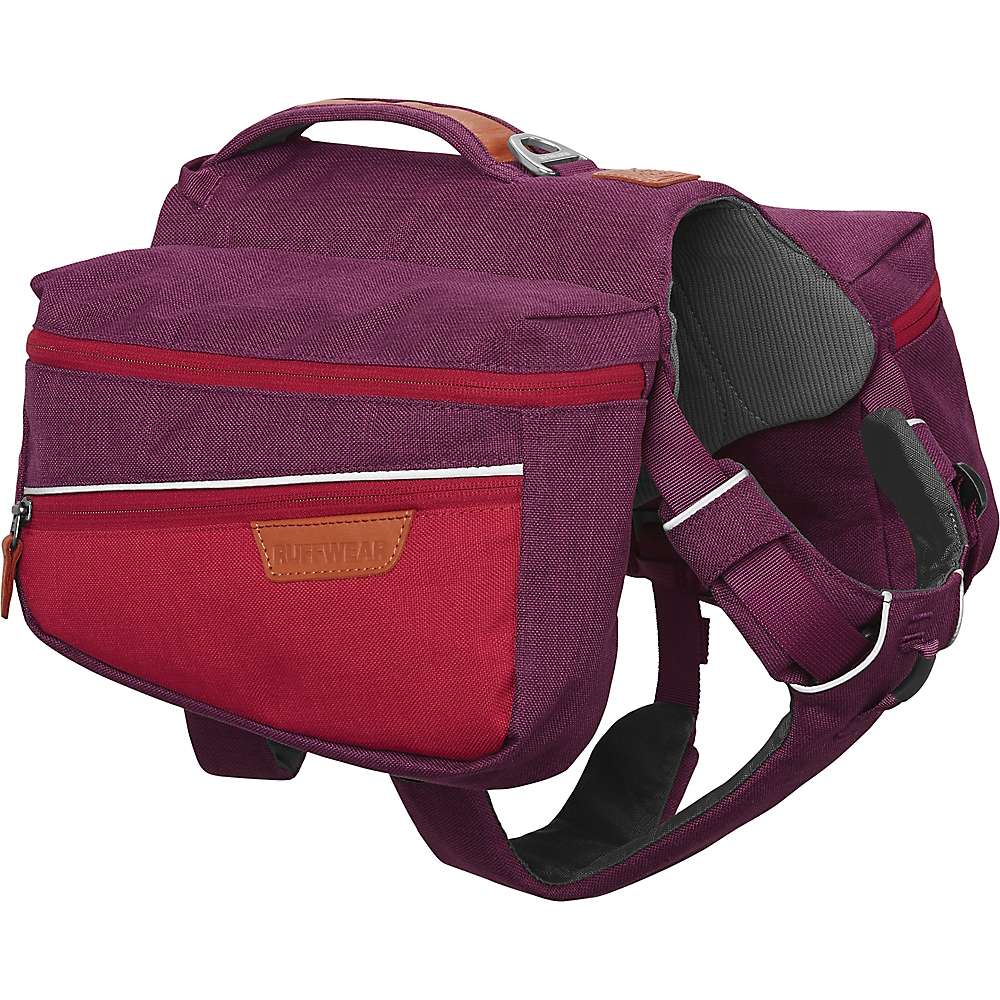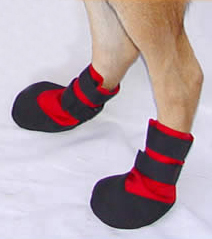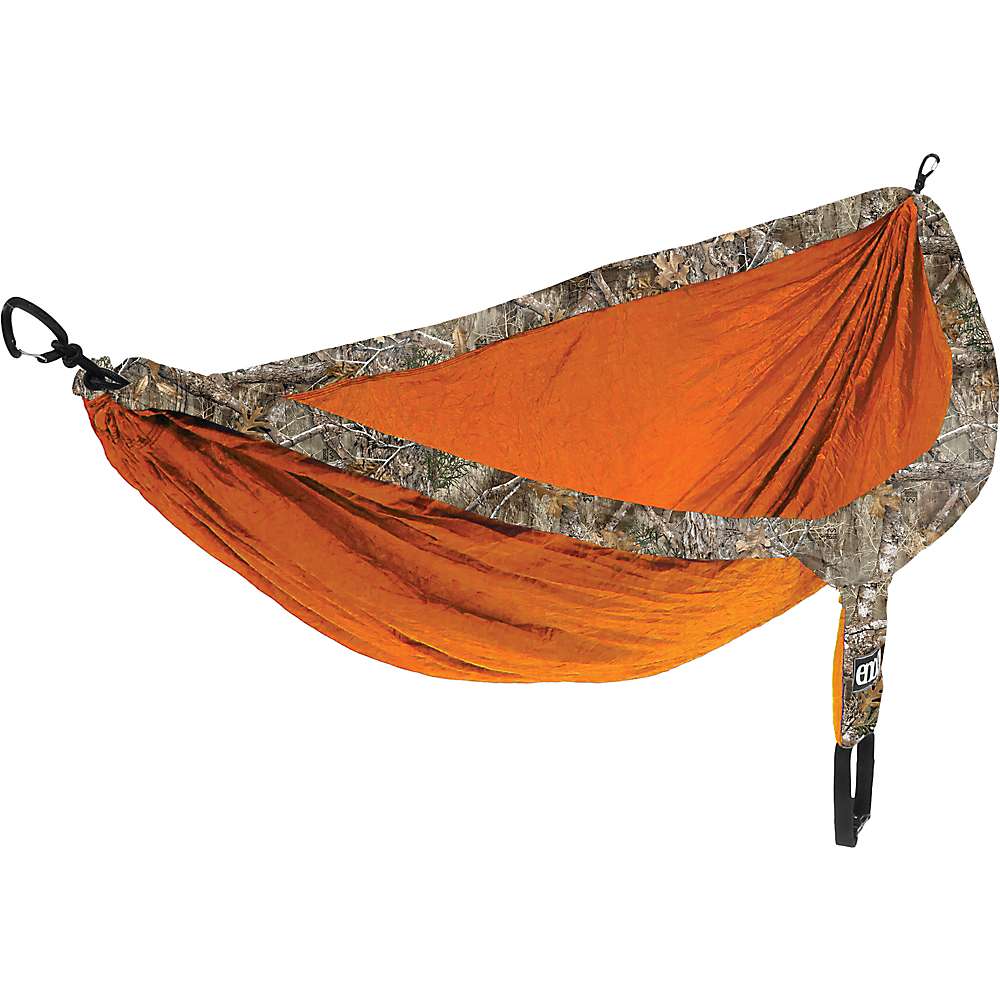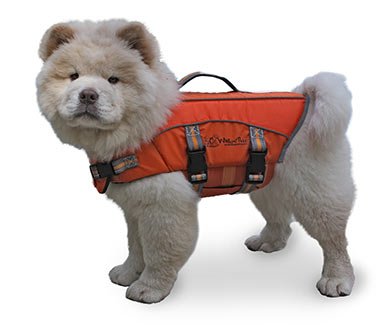Places to go Camping with a Malamute 
I am NOT a camper...my idea of camping is in a motorhome, or better yet a hotel....however, we have many puppy owners that love this activity and their dogs do too! Going on a camping trip doesn't mean that you have to leave your dog behind. Bringing your Malamute on a camping trip is a great way for him to get exercise, experience new sights and smells, and spend quality time with you. It's good brain food for a Mal.
Although camping is fun for both you and your Malamute, safety is your first concern. There has to be nothing more terrifying than a Malamute lost in miles of woods...with bears, wolves, and people who THINK he's a wolf. So security and safety is your main concern.
Planning your camping trip:
- Trim feet and nails...he'll track less dirt and debris into your tent if the hair on his feet are trimmed. It's also easier to find ticks.
- Make sure vaccinations are up to date (rabies especially).
- Consider your Malamute's health and disposition. When it is time for a walk, does your Malamute respond with enthusiasm? Is your Malamute an outdoor lover, or is it more comfortable curled up on a pillow at your feet? Is your Malamute in shape? Answering yes to all of these questions will ensure a more enriching vacation for your both. Somehow I can see Jazzy insisting (along with myself) that the queen sized bed needs to be somehow put in the backpack. Not going to happen!
- When planning your vacation, research Malamute friendly campgrounds and parks. Some national parks do not allow Malamutes, but there are some great alternatives that offer everything a national park does, and you can take your dog along on the vacation as well. We have also learned that many National and State parks while they allow Malamutes in general, do not allow them at specific sites. In our area for example, some waterfall trails allow them, others do not - so to keep from being disappointed and forced to turn back, find out in advance.
- For safety purposes, have a friend or a neighbor take a photo of you and your Malamute on your cell phone. If you and your dog get separated, this will come in handy in identifying you as the Malamute owner. Also make sure all tag phone numbers are up to date, and your dog is microchipped and the chip contact info accurate. Check his collar to make sure it's snug and can't slip off. If it's hunting season of any kind, buy an orange vest to put on your dog....ideally you won't be in areas where hunting is allowed, but better safe than sorry.
- You will need current vaccinations as well as paperwork from your veterinarian in some parks. Keep a copy of the paperwork with you in case it is requested by a park or campground official.
- Go to the hardware store and grab an extra set of dog tags with the exact address and campsite number where you and your dog will be staying. As an alternative, use masking tape on his regular tags and permanent marker the info. If you know someone local to the area, include their phone number. Many Malamutes have been lost and never found because the owner had to return home and there wasn't a local number to contact.
- If you are driving to the campsite, please restrain your Malamute in the car, either with a harness or a crate. In case of an accident, these products act as a seat-belt, and will keep your dog safe. We had a puppy owner that had an accident where the car rolled and both dogs ran from the wrecked car and took off down the road. She was very lucky they returned to her when called - a spooked, upset dog will likely run and keep running. If you are transporting the dog by truck-bed, it is imperative that you crate your Malamute during transport - in my opinion a dog should NEVER be in a truck-bed even in a crate...if you can sit in the cab, he should too. Should the truck roll in an accident, your dog - even if crated - will be thrown and probably killed. Not to mention some dogs have been stolen from pick up beds and others escape their crates. Don't risk it! I once refused to sell a pup to someone I knew that let their current dog ride in the back of the pickup - it's THAT important. They were a great home otherwise....but it's not worth the risk. There have been plenty of horror stories of dogs jumping out the back of truck-beds and sustaining serious or fatal injuries - this particular person had that happen to someone else's dog...it wasn't going to happen to MINE. A tether or leash is NOT an alternative.
- Always pack 2 leashes with a maximum of 6 feet in length, a few towels, and a brush to help against the dirt and insects you might encounter on the trip. Bring your tick-twister and tick repeallant if going into the woods. Don't forget your Malamute's food and plenty of bags to clean up after your Malamute.
- Another great idea is to attach a bell to your Malamute's collar - a jingle bell will do fine and a reflector or light. This way, you can hear your Malamute no matter where they are, and quite possibly see them at night. GPS trackers are fine, but you might not want to bring your laptop with you, so this device might not be as helpful as it would in town. Also most GPS trackers do NOT track in real time...there's usually a 5-10 minute lag in location so that could mean a mile or more distance if you are searching.
- Personally, I would NEVER allow the dog to sleep outside the tent. 1) He could slip the collar and escape, 2) is wolves, bears and other wild animals are as dangerous to your Malamute as to yourself. 3) He'll stay cleaner if he's not outside digging when you are sleeping. If he MUST be outside the tent...bring a REALLY secure crate and LOCK. Unless you are going to be at a totally desolate campsite, there is still the consideration that someone could steal your Malamute. There are a lot of sick people out there as well, another reason to bring him in the tent is you won't have someone slipping him something poisonous or even a treat that might upset his tummy - or being teased by children when you aren't looking. If he won't fit in your tent...you need a bigger tent!
- You and your dog will need plenty of water, so plan accordingly. A convenient alternative to water for your dog would be a product called Waterbites. It is easy to transport, non spill, keeps you dog completely hydrated, and comes in a great beef flavor that your dog is guaranteed to enjoy. I had not heard of this till recently, but it sounds like a neat idea. If you plan to use streams and lakes for your water, make sure his water is purified like yours is.
The campsite:
- Pick a spot with lots of shade, especially in the summer. Your dog needs to rest and cool off as much as you do.
- Pick up after your dog! This is the cardinal rule of camping with your dog and one reason many parks don't allow Malamutes.
- Try to keep the loud talking and howling to a minimum. Not everyone appreciates a breakfast and dinner song and show. Quiet hours usually start around 10 P.M. at most parks and are strictly enforced. Feed and walk between these times so his excitement isn't heard for miles.
- When camping with your Malamute, NEVER leave him unattended. EVER. Let me repeat that. Never leave your Malamute unattended. He WILL dig, rip the tent, destroy the crate, chew the wire to get loose to look for you. And he may not find you, but find infinite other things to chase and be gone in a nanosecond.
Some fun activities like swimming and/or hiking are perfect to do with your dog. Here are a couple of tips when engaging in these activities:
Swimming - Always know where you are swimming - water can carry pathogens dangerous to dogs and people. Also be aware of "no dogs" signs on beaches...be considerate!
- Get in the water first and throw a ball in to help encourage the process. If you have no access to a way to blow dry him, it might be better he didn't get totally wet. Legs will usually dry, but backs seem to take forever and the ongoing wetness can cause hotspots....something you really don't want to deal with on a camping trip. Let him swim when you can dry him.
- Bring plenty of fresh drinking water. Even freshwater lakes and streams can contain different bacteria and parasites that maybe harmful if swallowed. A water filter is something you should always pack.
- Make sure your dog always has a way out of water if you let him swim. Some dogs are so excited about jumping into the water, they don't always know the best way to get back on land. Jumping off a dock or a boat is a perfect example of this. Try starting in shallow water where they are not fully submerged.
- Depending on where you're camping, always be careful of other animals. In the Southeast, alligators tend to reside near the shores of large lakes. Snakes can also be a concern - you might want to carry a snake bite kit just in case. Check beforehand and ask park officials what the dangers might be. If there are bears, you'll want a way to contain food AWAY from your tent. Most importantly, respect posted warning signs. They are there to prevent accidents and keep you and your Malamute safe.
- If you plan on fishing with your dog, make sure to keep all fishing accessories far away from your dog's reach. Cutting a fishing hook out of a dog's paw would not be fun for either of you. Also keep your bait in an enclosed, locked pail or it may disappear. Malamutes love the smell of small fish used as bait.
- After swimming, be sure to clean your dog's ears out extensively. Not doing this could lead to bacteria in the ear canal, resulting in painful ear infections.
Hiking:
- Unlike the relaxing time you can have camping with your dog, hiking is a physically strenuous activity. It is recommended that when you see your veterinarian for your health exam, have them do a physical on your dog to make sure they are healthy enough for hiking. Obviously, age and condition would also play a role in your decision to bring your Malamute along for a hike. With a Malamute you will need to be aware of the heat and humidity. Hike in the shade as much as possible. It's easy for a full-coated mal to overheat in the summer above 70 degrees.
- Keep your dog on a leash and as close as possible at all times. Try not to let them go farther than 4 feet from your side. This is mandatory while on the trails in most dog friendly parks. Always be aware of small dogs in the vicinity. They often will foolishly challenge large dogs, and if anything happens, it's the large dog's fault...stay away from small dogs you don't know.
- Unlike your house, you might encounter plants or trees that your dog isn't exposed to normally. Do not let them close to these new plants, unless your recognize them. Poison ivy affects dogs just like it affects humans. Also, you might run into shrubs with berries that shouldn't be eaten by your Malamute. The last thing you want on your vacation is an emergency trip to the animal hospital. Which begs the point, know where the closest animal hospital is and their hours. There are phone apps that can help with this if you have a smart phone, if you don't - research ahead of time. Have a small first aid kit with you. Include some anti-gas tablets something to wrap a cut paw. The first aid kit should not just be for you.
- Always keep an eye out for the wildlife and use good judgment. If you see a animal that your dog should not be interacting with, make sure that you both keep a good distance. Have fun with your best friend on your next camping trip! If your dog acts squeemish about going down a trail, trust his judgement. He may smell coyotes, bears or something else dangerous and be trying to warn you. It's in their genes...Mals may have never seen a bear but they know they are bad news and will bark to warn you or refuse to go down a path ...trust their judgement. This is their heritage and job - to keep you both safe.
Here are some examples of great Dog and Malamute friendly national parks in Michigan:
Grand Canyon National Park - Malamutes on a leash are permitted in the park and a few designated hiking trails.
Hiawatha National Park (near us!) - Malamutes allowed on leash or under your control at all times (voice control ok - so watch out for loose dogs). If you go to Grand Island National Recreation area which is part of the forest, you'll need to get there by ferry...Malamutes are allowed on the ferry with a leash or in a crate or carrier. Once on the island, you and your Malamute can camp, bike or just walk the beach. The following forest areas allow Malamutes on a a 6 foot leash. https://www.fs.usda.gov/hiawatha
Pictured Rocks National Lakeshore (also near us) -Dogs are allowed in the following areas on a 6' leash. In general, Malamutes are not permitted on the park's hiking trails, in the backcountry or forests/fields. https://www.nps.gov/piro/index.htm
- Munising Falls: Parking and picnic areas and the trail to the falls
- Sand Point: Parking and picnic areas, beaches, and road
- Miners Falls: Parking and picnic areas
- Miners Beach: Parking and picnic areas, beach, and trail to the beach
- Little Beaver Campground: In campground only
- Beaver Basin overlook: Parking area and road
- Twelvemile Beach Campground: Campground picnic area, and Lake Superior Beach directly in front of campground
- Hurricane Beach Campground: Campground, picnic area, and Lake Superior beach directly in front of campground
- Log Slide: Parking and picnic areas
- Grand Sable Lake overlook: Parking and picnic areas
- Grand Sable Visitor Center: Parking and picnic areas
- Grand Sable Lake boat ramp: Parking and picnic areas
- Sable Falls: Parking and picnic areas
Yosemite National Park - Malamutes are allowed in most campgrounds, paved roads, and developed areas.
Yellow Stone National Park - Malamutes are allowed in any areas within 100 feet of roads, parking areas and campgrounds. They are prohibited from entering the back-country or any trails due to wildlife activity.
Big Bend National Park- Malamutes are NOT allowed on trails, off roads, or on the river. Basically, your Malamute can only go where your car can go.
Acadia National Park - There are 100 miles of hiking trails and 45 miles of carriage roads in the park where Malamutes are permitted. The two swimming beaches (Sand Beach and Echo Lake) are also Malamute friendly except from May 15 to September 15.
Smoky Mountain National Park - Dogs are allowed in campgrounds, picnic areas, and along roads, but must be kept on a leash at all times. Dogs are only allowed on two short walking paths: the Gatlinburg Trail and the Oconaluftee River Trail.
Rocky Mountain National Park - Malamutes are permitted in Rocky Mountain National Park, however they are NOT permitted on trails or in the backcountry. They are allowed only in areas accessed by vehicles, including roadsides, parking areas, picnic areas and campgrounds.




